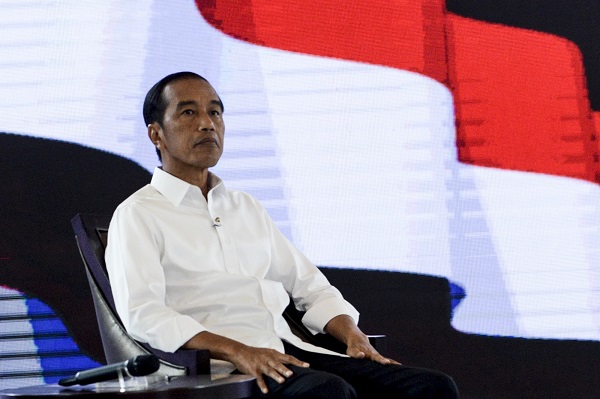Jakarta, Indonesia has been immersed in a wave of mass protests against the regressive reform of the penal code that has put the nation’s president, Joko Widodo, against the ropes.
The demonstrations were triggered by a the bill to immediately introduce reforms to the penal code, which among other things would criminalize sex outside of marriage, Efe news reported on Friday.
But the protests, which have turned violent in some places, have focused mostly on corruption and the erosion of freedoms.
University students have led the actions, which are set to continue over the weekend.
It’s the biggest movement organised by students in Indonesia since 1998, which forced the resignation of General Suharto and led to its transition to democracy.
A common theme for the protests is corruption, with the protesters denouncing that the new penal code is far too indulgent with those guilty of corruption.
They’re also asking for recent changes in the law that regulates the anti-corruption commission – the Corruption Eradication Commission (KPK) – to be revoked, arguing that the reforms undermine the competency of an organization that has investigated hundreds of politicians.
The priorities of the protesters vary on different islands of the archipelago due to the huge inequalities in regions like Java and Sumatra and more remote areas like Papua and Borneo.
Although the controversial reform of the penal code affects a range of areas, from reproductive health to criminalising insulting the president, in Java corruption is one of the more important matters, while in Borneo the devastating forest fires are the primary concern.
The Parliament was on Tuesday expected to pass the first comprehensive review of the penal code since it was introduced in 1918 by the Netherlands while it was still a Dutch colony. President Widodo was forced to delay deliberations as a result of the protests.
The bill contains 628 articles criminalising sex outside marriage, the dissemination of information about contraceptives, abortion, and it toughens laws against blasphemy, adultery and the spread of communist ideology.
Several human rights organisations have denounced about 20 articles and groups of articles under the reform, and warned that several put the rights of women, religious minorities and the LGBT community at risk.
Since Tuesday, thousands of Indonesians have taken to the streets across the archipelago. Every day protests have began peacefully, but some have descended into violence with clashes with the security forces.
At least three youths have died during the unrest. One of the deaths took place in Jakarta due to a respiratory insufficiency. The other two died on Sulawesi island of a shot to the chest and a head injury, according to the police.
The students have been joined by some Islamic groups. Nearly 88 percent of the 265 million plus population practice Islam and in the past has shown its ability to influence politics.
The government has reacted by defending the freedom of expression of the university students, but warned that it will not tolerate anarchist actions, which according to security affairs minister Wiranto, are staged by groups that are opposed to the second term of Widodo that is to begin in October after his win in the April elections.
Widodo, who came from a humble background and won his first election in 2014 with an image that depicted him as someone who was close to the people, on Thursday announced he was considering revoking the reform and claimed his advocacy for fundamental rights.










